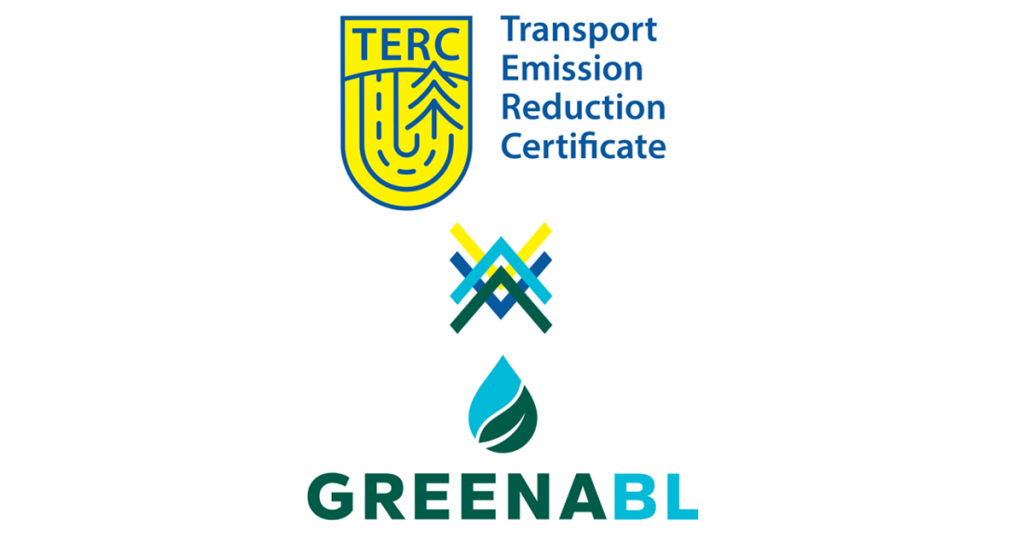As regulators worldwide push for companies to reduce their transportation-related greenhouse gas emissions, companies are developing best practices to meet regulatory compliance while also striving to adopt sustainable and environmentally friendly practices internally.
Thankfully, organizations don’t need to go at it alone. They can work with others in the supply chain to trim their emissions output, both now and in the future.
This is why Greenabl Shippers Association exists. We’re the logistics industry’s first and only cooperative procurement group committed to achieving global supply chain decarbonization. We work with shippers, ocean carriers, dray and trucking companies, ports, and intermediaries to develop tools that can help all parties reduce carbon emissions.
And we’re far from done in developing solutions to help our members: We’ve just announced our collaboration with Eco-Energy to offer Transport Emission Reduction Certificates (TERC), a voluntary carbon program for the transportation and logistics industry.
The Need for Targeted Carbon Reduction in Transportation
The transportation industry needs to take the lead in addressing global GHG emissions because the industry accounts for roughly a fifth of the world’s GHG emissions.
However, a reliance on fossil fuels, coupled with the complexity inherent in the supply chain can make decarbonizing the transportation industry a challenging prospect. While the transportation industry is making headway in working with stakeholders to develop alternative fuels such as electric cars and trucks, hydrogen-powered locomotives, and large ocean vessels running on methanol, there is still a long way to go because of the time and resources it takes to develop adequate fueling infrastructure.
What’s more, Scope 3 emissions, which are a category of emissions that include supply chain and transportation-related emissions, tend to account for the bulk of a company’s emissions. However, corporations have largely focused on reducing Scope 1 and Scope 2 emissions, according to a June study from the Boston Consulting Group, in part because of the complexity involved in identifying and mapping out all the contributors to Scope 3 emissions.
Understanding TERC: Leveraging Sustainability Initiatives to Further Industry Wide Decarbonization
One benefit of using TERC is that its recommendations for emissions reductions are relevant and specific to transport operations. Our carbon program focuses on reducing GHG emissions related to domestic biofuel production and usage. TERC is also beneficial for organizations seeking to reduce their Scope 3 emissions because our carbon program is holistic in its approach: TERC looks at how to trim emissions occurring in upstream and downstream activities.
Each TERC is backed by rigorous verification processes, ensuring that the emission reduction certificates represent genuine, measurable, and permanent reductions in GHG emissions.
When companies decide to participate in the TERC program, they are not only addressing their own indirect emissions, they are also supporting the development of sustainable transport technologies and infrastructure. They are also joining a program designed to be accessible to companies of all sizes — even small businesses have a scalable option that enhances their sustainability credentials.
Greenabl and TERC: Building Sustainable Supply Chains
As seasoned experts in transportation and logistics, Greenabl saw the need for a way to hold companies accountable as they strive to reduce their GHG emissions. That’s why we teamed up with Eco-Energy, a biofuels supply chain management and logistics firm, to develop TERC. The voluntary program offers a way for organizations to mitigate their carbon footprint and Scope 3 emissions in particular.
“The TERC program is a game-changer for companies seeking to make a real impact by tackling their Scope 3 emissions in a targeted and effective manner,” said Greenabl Executive Director Roman Ramirez, who noted that this targeted focus is especially important as transportation is one of the largest contributors to GHG emissions.
“We are thrilled to partner with Greenabl in launching the TERC program on their platform, which represents a groundbreaking advancement in addressing transportation-related Scope 3 emissions across all sectors,” said Brian Simpson, Chief Marketing Officer of Eco-Energy. “This collaboration underscores our commitment to innovative solutions that drive meaningful change and foster sustainability across complex supply chains.”
Take Decisive Action on Developing an Emissions Reduction Plan
Greenabl and Eco-Energy’s TERC offers a tailored approach that’s vetted by rigorous verification to ensure genuine emission reductions. Companies of all sizes can benefit from our carbon program and depend on our years of experience serving the transportation and logistics industry.
Contact Greenabl today to learn how TERC can boost your company’s sustainability initiatives.


